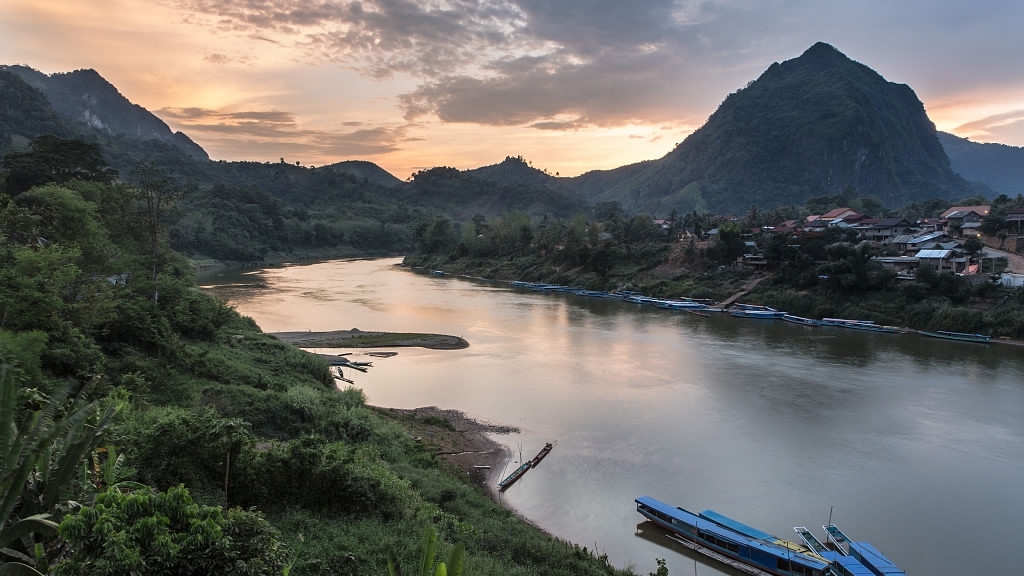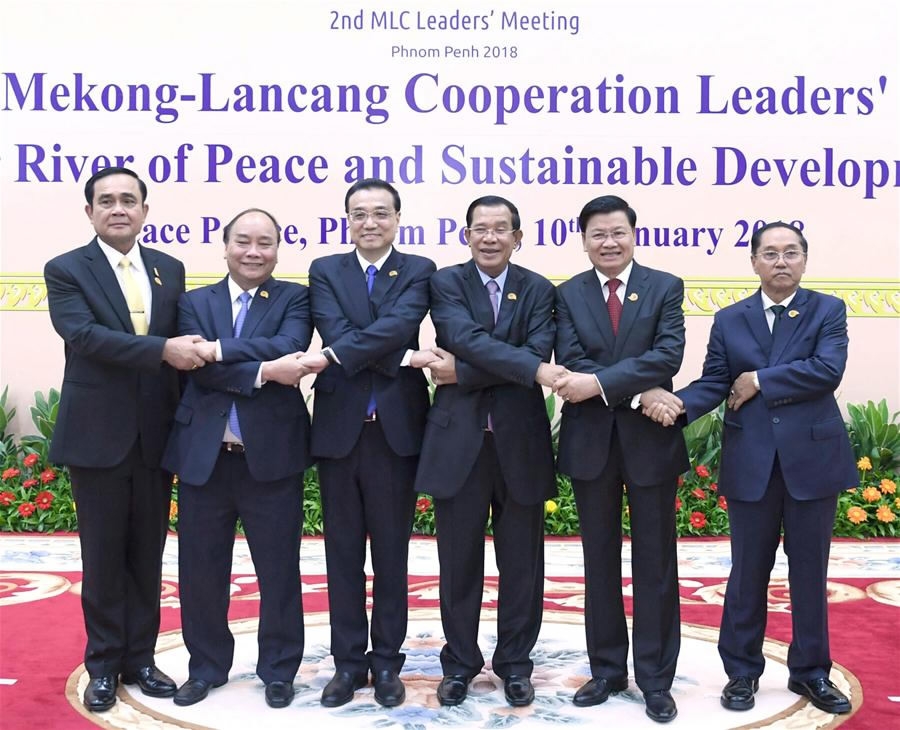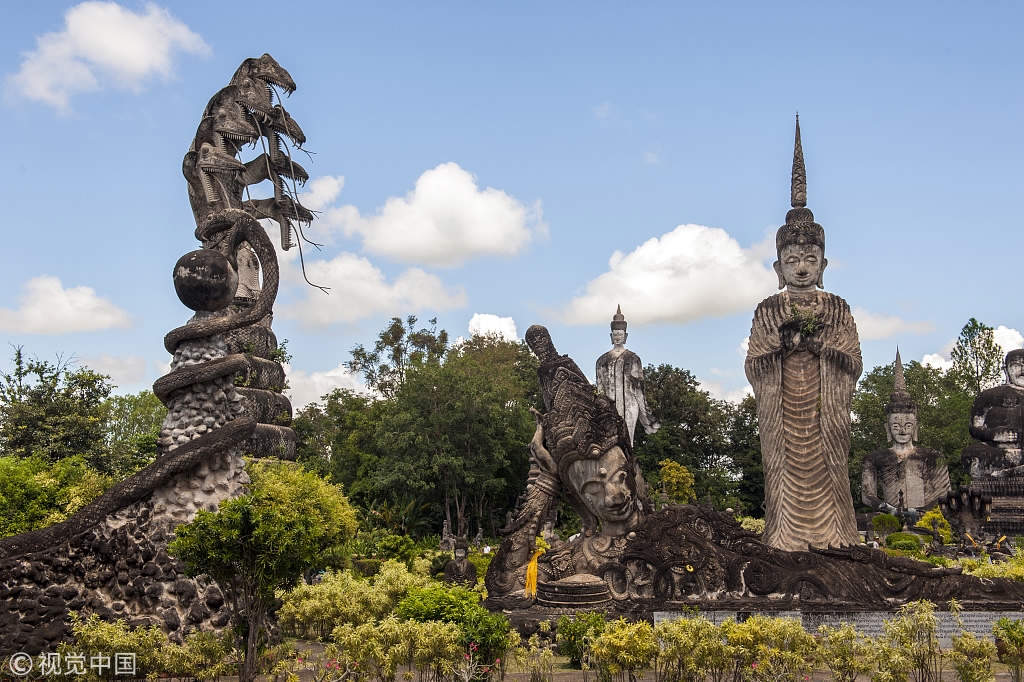
Opinions
22:48, 11-Jan-2018
Opinion: Why one river is so important for China’s global ambitions
Guest commentary by Ed Lane

From the Qinghai-Tibet Plateau to the Mekong Delta runs a river that is the lifeblood of villages and cities in China, Myanmar, Laos, Thailand, Cambodia and Vietnam.
So the significance of a delegation led by Premier Li Keqiang at the Lancang-Mekong Cooperation summit in Cambodia Jan. 10 and 11 in Cambodia is a high stakes effort to map out a five-yea development plan crucial to lift incomes for farmers, provide power for cities and control waters that are now a largely unpredictable force of nature.

Chinese Premier Li Keqiang attends the second Lancang-Mekong Cooperation (LMC) leaders' meeting in Phnom Penh, Cambodia, Jan. 10, 2018. Cambodian Prime Minister Samdech Techo Hun Sen and Li Keqiang co-chaired the meeting, which also brought together Lao Prime Minister Thongloun Sisoulith, Thai Prime Minister Prayut Chan-o-cha, Vietnamese Prime Minister Nguyen Xuan Phuc and Myanmar Vice President U Myint Swe. / Xinhua Photo
Chinese Premier Li Keqiang attends the second Lancang-Mekong Cooperation (LMC) leaders' meeting in Phnom Penh, Cambodia, Jan. 10, 2018. Cambodian Prime Minister Samdech Techo Hun Sen and Li Keqiang co-chaired the meeting, which also brought together Lao Prime Minister Thongloun Sisoulith, Thai Prime Minister Prayut Chan-o-cha, Vietnamese Prime Minister Nguyen Xuan Phuc and Myanmar Vice President U Myint Swe. / Xinhua Photo
In March of 2016, China pledged 10 billion yuan (153.5 million US dollars) in preferential loans and 10 billion US dollars in credit to Mekong River countries for infrastructure and industrial projects.
The Lancang-Mekong builds on that effort. Lancang refers to the upper reaches of the Mekong and also highlights the complexity of the effort as downstream from the source of the river lies a complex system of irrigation and other uses straight into the Mekong Delta.
More than 60 million people along the river depend on any development plan to work and ensure a future that blends tradition with modern planning.
Indeed, a Mekong plan is needed to fight poverty and improve lives and if joined with funds and projects from the Asian Infrastructure Investment Bank (AIIB) can see a transformation in Southeast Asia that is long overdue-including rail lines connecting Yunnan Province with Vientiane and Bangkok.
This is also smart diplomacy as countries such as Myanmar emerge from economic sanctions and Laos and Cambodia attempt to move from frontier markets to emerging ones.
The Lancang-Mekong cooperation effort started in 2014 and has already provided development shoots in the form of 45 projects from water resource management to border trade rules.

Buddhist and Hindu statues at Sala Kaew Ku, a park built by Luang Pu Bunleua Sulilat, a mystic and cult leader, outside the Mekong River town of Nong Khai in Thailand /VCG Photo
Buddhist and Hindu statues at Sala Kaew Ku, a park built by Luang Pu Bunleua Sulilat, a mystic and cult leader, outside the Mekong River town of Nong Khai in Thailand /VCG Photo
But the cost of development-and there is a cost to livelihoods, ways of life and the environment-are also a test for China and all of the countries of the river system. Li has said there needs to be "pragmatic cooperation" that will work with institutions like the AIIB and the Association of Southeast Asian Nations (ASEAN) to gain consensus.
But consensus won’t be easy among farmers who want steady water supplies and industry that wants its own sources. A key aspect is what are known as riparian rights. This involves reserves and agreement on practices between land uses along rivers and streams and the habitats for plants from mangrove swamps at the delta to hydrophilic plants that foster soil conservation, biodiversity and help naturally regulate silt and other flows.
An easier way to put it though is that changing something upstream with a dam or other diversion, creates issues downstream. It is here that China could use its extensive engineering experience and look for new technologies as well as respect old ways of life to keep the Mekong as one of the great rivers of the world.
Of course, the money helps. But meetings like the Lancang-Mekong Cooperation summit send another message besides cash – one where leadership on protecting the environment is as important as making sure people can have clean water, electricity and grow the food they need.
(Ed Lane is a journalist based in Singapore who covers political economic and culture stories in Asia. The article reflects the author's opinion, and not necessarily the view of CGTN.)

SITEMAP
Copyright © 2018 CGTN. Beijing ICP prepared NO.16065310-3
Copyright © 2018 CGTN. Beijing ICP prepared NO.16065310-3